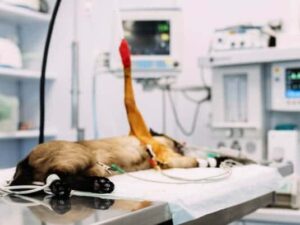
Menu


£205.00 Ex VAT
Start: 9th September 2024
CPD: 10 hours (UK), 10 points (AUS, NZ) over 4 / 6 weeks
Level: Intermediate
This course is aimed at nurses working in general practice
Learning objectives
After completion of this week, participants should be able to:
Learning objectives
After completion of this week, participants should be able to:
Learning objectives
After completion of this week, participants should be able to:
Learning objectives
After completion of this week, participants should be able to:
The course will be fully tutored by Kath Howie and will consist of 10 hours of CPD and will be provided in various formats, including tutorials, tasks, case scenarios, forum discussions and quizzes. This course is tutored for 4 weeks, followed by a two week extension of untutored ‘catch up’ time, before the course officially ends.
All delegates will then have unlimited lifetime access to the learning material for future reference
Kath Howie VTS (ECC), RVN
Principal Nurse Manager, VetsNow
Kath worked in a primary care practice through her training and qualified in January 2000. After a few years in practice as a registered nurse she decided to take the step into referral nursing in 2003. After a couple of years gaining experience of nursing intensive care patients and those with complex needs, she moved into emergency practice in 2005. In 2009 she achieved the Veterinary Technician Speciality in Emergency and Critical Care and re- certified in 2014.
The Australian Veterinary Nurse and Technician (AVNAT) Regulatory Council has allocated 10 AVNAT CPD points to this continuing education activity.
This course is also recognised by the New Zealand Veterinary Nursing Association (NZVNA) as providing 10 CPD points.
This online course is worth 10 hours of CPD.
A certificate will be available from the ‘My Courses’ section, for you to download and print, once you have completed the course. A permanent record of your total CPD hours will also be recorded in your account section.
Upon purchase you will be registered to attend the course, for 4 weeks from the start date. The course will consist of various interactive tasks and lessons, including quizzes, case studies, forum discussions and further reading material.
The course is fully tutored, with new material will be provided each Monday morning, but the onus will be on the individual delegate to ensure that all tasks are fully complete. The certificate will only be issued at the end of the course when all tasks have been accomplished. Fewer CPD hours will be awarded at the the end of the course if there are unfinished tasks or there has been no contribution to the discussion forum, for example
The course is fully flexible, and there are no weekly ‘deadlines’ – the lessons and tasks may be completed whenever is convenient for each delegate, and any live lessons with be recorded and made available later that same day. Furthermore, all the course material will be available for a further 2 weeks, to allow delegates the opportunity to catch up on missed lessons and tasks, or to take the opportunity to delve further into the suggested reading texts. Please note however, that the course will not be tutored by the speaker during these final two weeks, but the time spent will count towards your CPD hours
After 6 weeks, the course will be complete and there will be no further opportunity to gain the certificate or CPD hours, however, you will have unlimited lifetime access to the tutorials, further reading and quizzes for future reference. If you make any personal notes during the course using the ‘take notes’ app, these will be saved, along with your certificate and CPD record for permanent access in ‘My CPD’
This course has been listed as ‘Intermediate’ level
All of our courses are aimed at veterinary nurses in general practice, but everyone who works in the veterinary profession is very welcome to attend, whether you are a clinical receptionist, veterinary surgeon, student nurse or have been a qualified nurse for over 20 years!
The courses are not formally assessed for skill level, so the following CPD levels are just a rough guide to help you decide if a course may be more or less suitable:
Introduction
– maybe most suitable for qualified nurses in general practice approaching a new topic or looking for a refresher course
Intermediate
– maybe most suitable for qualified nurses in general practice along with referral / specialist nurses looking for a refresher course
Advanced
– maybe most suitable for referral / specialist nurses and highly experienced qualified nurses in general practice
You will earn 205 Pawprint Points (£20.50 website credit) when you purchase this course
Our loyalty scheme rewards you with 10% in website credit to spend on future courses. Choose pay with Pawprint Points during checkout.
Please ask your practice manager or accounts department to visit the website, register an account in their own name, and during checkout, complete the ‘delegate name’ and ‘delegate email’ sections with your personal details. We will then register you a personal account on your behalf, and transfer the course booking over to your new personal account. We will of course email you all the information you need to access this new account and your CPD course.
If you need an invoice and no other payment method is available to you, then please email [email protected] with all the following information:
Please note the following:





Excel CPD specialises in providing online CPD for veterinary nurses and technicians all over the globe. Our courses are also fully approved by AVNAT for our nursing colleagues in Australia and New Zealand.
©2009-2024 Excel CPD | Terms and Conditions | Privacy Policy
Reviews
There are no reviews yet.